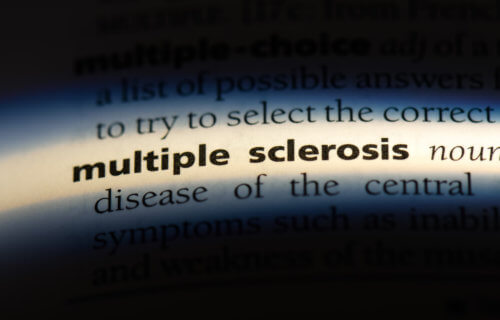STOCKHOLM, Sweden — Getting eight hours of sleep is an age-old formula for maintaining optimal health. However, many adolescents fail to get a good night’s rest on a regular basis for various reasons. Now, scientists say not getting enough sleep as a teenager can lead to very serious health problems later on. Specifically, a team in Sweden finds lack of sleep as a teen increases the risk of developing multiple sclerosis (MS).
The average age of a person developing this autoimmune disease is 34. Multiple sclerosis is a condition where the immune system eats away at the protective covering of nerves. This can cause vision loss, chronic pain, fatigue, and impaired coordination. Studies show doing shift work at a young age can raise the risk of receiving an MS diagnosis, but whether body clock disruptions and lack of significant sleep influences the risk as well has been unclear.
To delve into this, the researchers used information from the Epidemiological Investigation of Multiple Sclerosis (EIMS), which included 16 to 70-year-old Swedish residents. MS patients were recruited from hospitals and privately run neurology clinics. The team matched each patient by age, sex, and residential area with two healthy people from the national population register between 2005-13 and 2015-18.
The team paid special attention to sleep patterns between the ages of 15 and 19. They ultimately included 2,075 MS patients and 3,164 without the condition for their analysis. To conduct their study, they asked participants about length of sleep on work or school days, and on weekends or free days at different ages. They classified sleep duration as short (less than 7 hours per night), adequate (7-9 hours/night), and long (10 or more hours). Researchers then calculated changes in sleep timing between the days and categorized them as less than one hour per night, one to three hours, and over three hours. Participants also had to assess their sleep quality at different ages using a five-point scale, where five means very good.
Less than 7 hours of sleep significantly increases MS risk
The results show that sleeping for fewer hours and getting less quality sleep during adolescence increased the risk of MS diagnosis. Compared to adequate sleep, short sleep displayed a link to a 40-percent higher risk of developing MS after accounting for confounding factors that could influence the results like BMI and smoking. However, long sleep on both work or school days and weekends did not show the same increased risk.
“Insufficient sleep and low sleep quality during adolescence seem to increase the risk of subsequently developing MS. Sufficient restorative sleep, needed for adequate immune functioning, may thus be another preventive factor against MS,” the team says in a media release.
Unfortunately, it’s not uncommon for teenagers to miss out on quality sleep, and screen time and social media have worsened this.
“Associations have also been demonstrated between social media use and sleep patterns. Availability of technology and internet access at any time contributes to insufficient sleep among adolescents and represents an important public health issue,” the researchers add.
The team points out that a key limitation to their findings is that reverse causation may be at play. They explain that poor sleep could be the result of neurological damage rather than the other way around. Regardless, getting too little or bad quality sleep is recognized as inflammatory and harmful to the immune system.
The findings are published in the Journal of Neurology Neurosurgery & Psychiatry.

